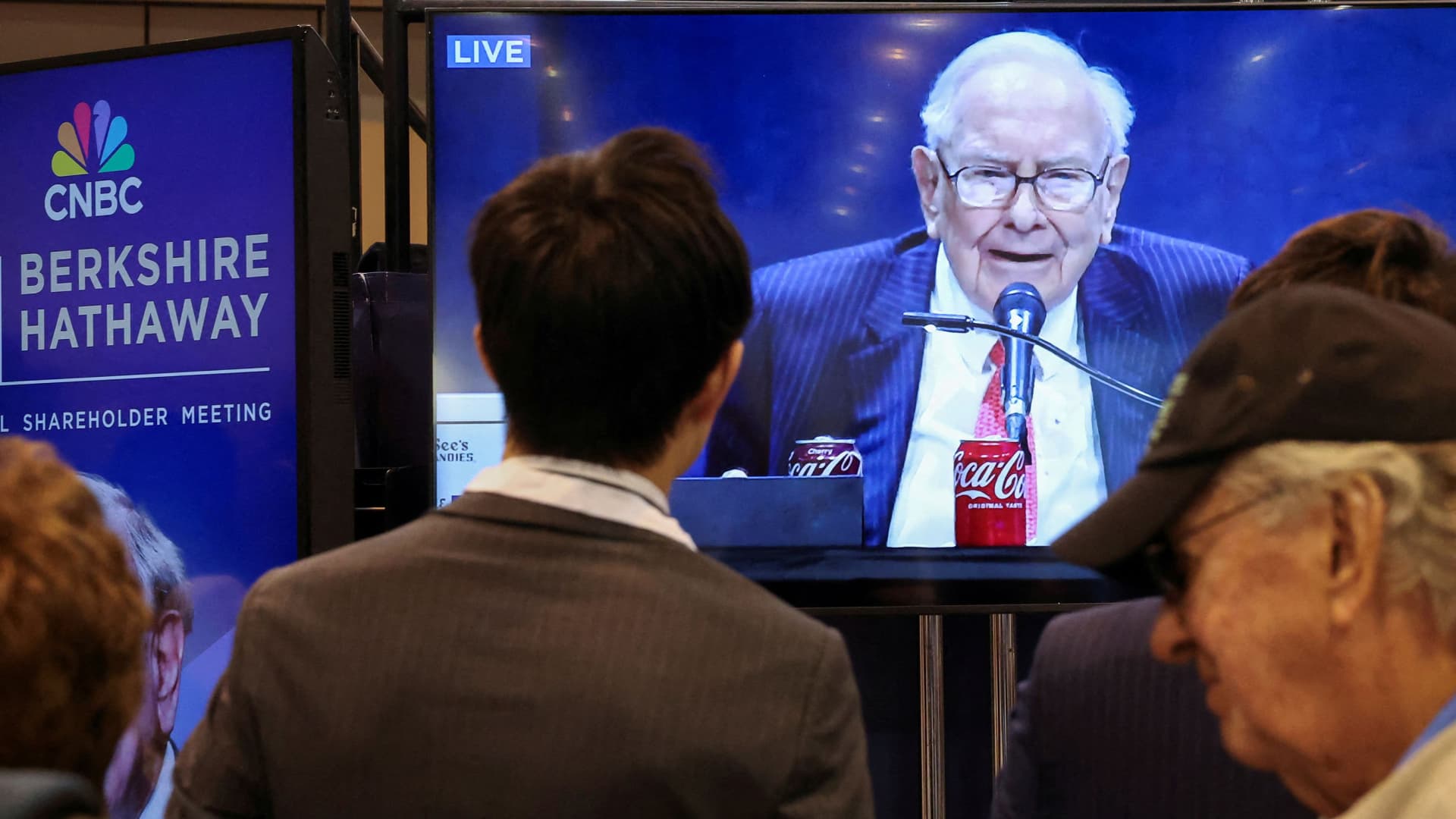Warren Buffett’s Absence: What It Means for Berkshire Hathaway’s Future
In a historic first, Warren Buffett announced he will not attend Berkshire Hathaway’s 2025 shareholder meeting, ending his six-decade streak of presiding over the iconic event. The 93-year-old investing legend cited health precautions as the primary reason, sparking immediate speculation about succession plans and the conglomerate’s future. The May 3, 2025, meeting in Omaha, Nebraska—dubbed “Woodstock for Capitalists”—will instead feature Vice Chairs Greg Abel and Ajit Jain leading discussions, marking a pivotal transition for the $880 billion company.
Buffett’s Legacy and the Leadership Transition
Buffett, who transformed Berkshire from a struggling textile firm into a global powerhouse, has long been the face of the company. His absence raises questions about whether the next generation can maintain its unique culture and performance. Since 1965, Berkshire’s stock has delivered a mind-boggling 4,384,748% return compared to the S&P 500’s 31,223% gain—a track record that analysts say may be impossible to replicate.
“This isn’t just a shareholder meeting change—it’s the end of an era,” said financial historian Robert Miles, author of The Warren Buffett CEO. “Buffett’s charisma and trust were intangible assets. The challenge now is proving that Berkshire’s system outlasts its architect.”
Greg Abel, 61, designated as Buffett’s successor in 2021, will take center stage. Known for his operational prowess at Berkshire Energy, Abel faces skepticism from some investors. A 2023 Morningstar survey revealed 42% of Berkshire shareholders doubted whether new leadership could sustain the company’s market-beating returns.
Market Reactions and Investor Concerns
Berkshire’s Class A shares dipped 1.2% following the announcement, though they remain up 12% year-to-date—outperforming the broader market. The muted reaction suggests confidence in Abel’s readiness, but long-term uncertainties linger. Key concerns include:
- Deal-making agility: Buffett’s unparalleled reputation gave Berkshire access to exclusive investments like the 2008 Goldman Sachs deal during the financial crisis.
- Shareholder loyalty: Over 40,000 attendees flock to Omaha annually for Buffett’s wisdom. Without him, the event risks losing its cultural cachet.
- Capital allocation: Berkshire’s $189 billion cash hoard requires deft management amid rising interest rates and tech disruption.
“The market is pricing in a smooth transition, but Berkshire’s complexity is underestimated,” warned Morgan Stanley analyst Michael Phillips. “Its decentralized model relies heavily on Buffett’s oversight. Even small missteps could trigger volatility.”
The Road Ahead for Berkshire Hathaway
Abel and Jain have already assumed larger roles, with Abel overseeing non-insurance operations and Jain managing reinsurance. The 2025 meeting will serve as their debut under global scrutiny. Notably, Abel’s recent push into renewable energy (Berkshire owns 12% of U.S. wind capacity) signals a strategic shift from Buffett’s traditional industries.
Meanwhile, Berkshire’s portfolio—which includes Apple, Coca-Cola, and Geico—faces evolving challenges. Apple, its largest holding at $174 billion, confronts slowing iPhone sales, while climate change threatens insurance margins. Jain’s expertise will be critical here; under his watch, Berkshire’s insurance float grew from $39 billion to $165 billion.
Expert Perspectives on the Succession Plan
Opinions on Berkshire’s future diverge sharply. Bulls point to its $36 billion annual operating earnings and fortress-like balance sheet. Bears highlight reliance on Buffett’s “moat”-focused investing philosophy in a tech-dominated era.
“Berkshire’s subsidiaries are cash cows, but growth requires bold bets—something Abel hasn’t proven yet,” argued CNBC’s David Kass. Conversely, The Wall Street Journal’s Jason Zweig noted, “The board spent 20 years preparing for this. If any company can thrive post-legend, it’s Berkshire.”
Conclusion: A New Chapter Begins
Buffett’s absence marks a watershed moment for corporate America. While Berkshire’s fundamentals remain robust, its future hinges on translating philosophy into performance without the Oracle of Omaha. Investors should watch for Abel’s capital deployment decisions and whether the 2025 meeting retains its gravitational pull. One thing is certain: the transition will test whether Berkshire is truly “Buffett-proof.”
For deeper analysis, explore Berkshire’s latest annual report or attend the 2025 meeting virtually—details will be posted on the company’s website in April.
See more Business Focus Insider Team

